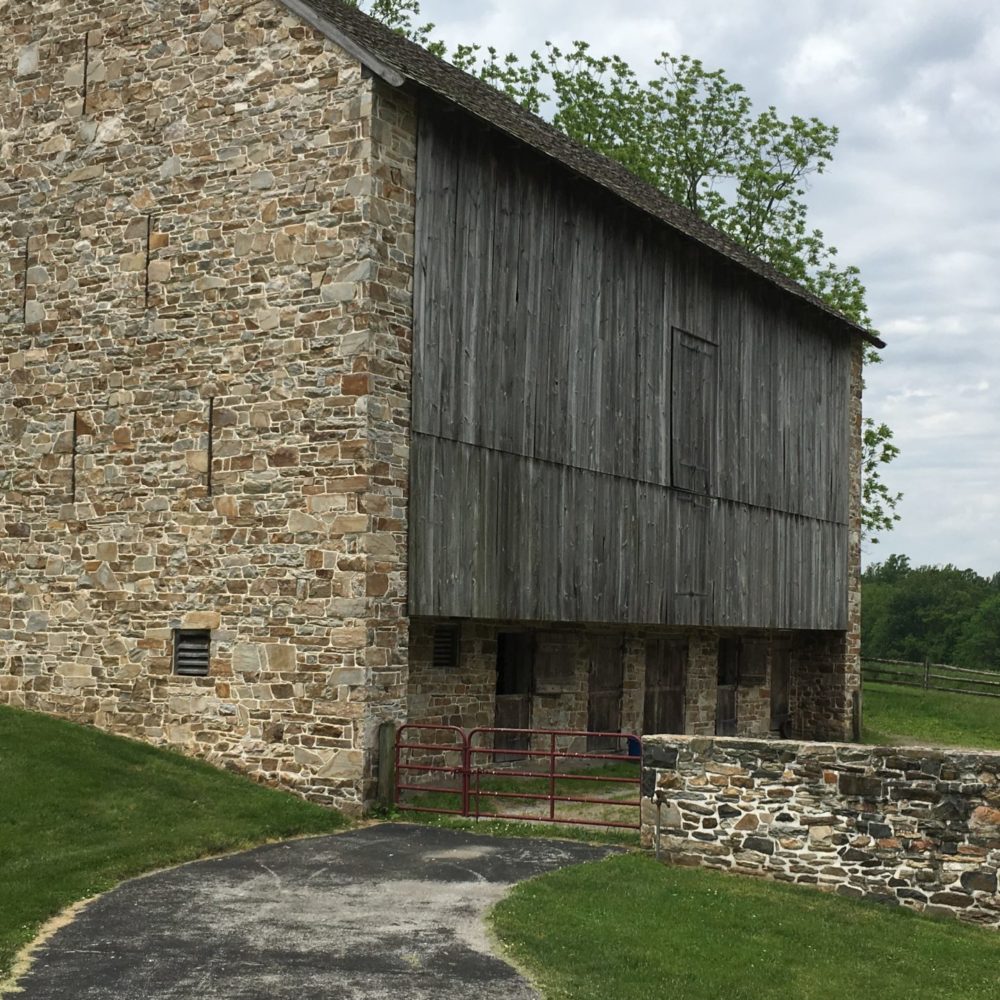
Not long ago, a typed narrative from a transcribed letter written by a Quaker farmer in “Chester Township” Pennsylvania showed up in some files. It was dated 10th month, 1725, and began “Dear Sister Mary Valentine, this goes with a salutation of love to thee, brother Thomas, and the children…”
Immigrant Robert Parks was writing home to Ireland to set the record straight about what America was really like. He was careful to share all the facts with Mary Valentine, reporting that:
- There was a disenchanted traveler on the ship “rather a Lyer as I may term him…not thinking this country suitable to his idleness” who was spreading false rumors that Robert and his family “were not satisfied in coming here, therefore I would not have you give credit to such false reports for the future.”
- Land was affordable: 100 acres of land cost between 10 to 100 pounds per 100 acres ($2,274 – $22,740 today), and pricing depended on land’s suitability for farming.
- And, above all, people who came and worked hard would see good results from farming.
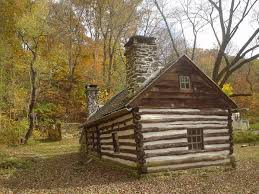
After renting a brick home with farm acreage in Chester, Robert reported their father was able to purchase a parcel of 500 acres. All of this (except 20 acres) was forested. It possessed a single dwelling, “a small log house,” which we imagine they immediately added to.
A number of family members all pitched in to make this new farm yield a bounty of staple supplies.
He writes, “We have sowed about 200 acres of wheat & 7 acres of rye this season…I am grown an experienced ploughman & my brother Abell is learning. Jonathan and thy son John drives for us…we have the finest plows here that can be. We ploughed up our summer Fallows in May and June, with a Yoak of Oxen & two horses, and they go with as much ease as double the number in Ireland. We sow Wheat and Rye in August or September…We have had a crop of oats, barley & very good flax and hemp, Indian corn and buckwheat—all of our crop Sowing & Planting this last summer. We also planted a bushel of white potatoes which cost us 5 Shills (shillings) and we had 10 or 12 bushels increase. This country yields extraordinary increase of all sorts of grain.”
Robert goes on at great length with specifics, even concerning the weather and how to dress: “Winters are not so cold as we expected nor the summers so extreme hot as formerly. In summertime they wear nothing but a shirt and linen drawers-trousers, which are breeches and stockings all in one made of linen; they are fine cool wear in summer.”
And, he enthuses with his 1725 spelling and grammar, about what Mary will find at local markets– “there is two fairs, yearly, and two markets weekly in Philadelphia, also two fairs yearly in Chester and likewise in New Castle, but they sell no cattle nor horses, but altogether Merchants goods as Hatts, Linnen & wollen cloth, handkerchiefs, knives, Scizars, tapes and treds buckles, Ribonds, and all sorts of necessarys fit for our … Country; here all young men and women that want wives or husbands may be Supplyed. Let this suffice for our Fairs.”
What was Mary to bring when she came to live with Robert, Jonathon and son John?
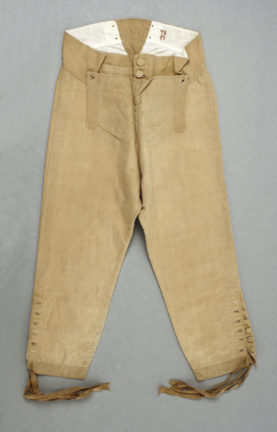
Feather beds—which were “very dear here and not to be had for money.” Also, gunpowder, shot, shoes, ‘flow chains,’ a good iron, ‘beetle rings’, 3 iron wedges, 3 iron felling axes and “Oil fit for Guns, thee may buy it in Dublin…”
Robert suggests Mary pack heavily for the trip to America and “cloathe yourselves well with wollen and linen. Shoes & stockings & hats for such things are dear here & yet a man will sooner earn a suit of cloaths here than in Ireland, by reason workman’s labour is do dear.”
In other words, laboring men were better paid in Pennsylvania than in Ireland. Robert specifies the going rate is 18-20 pence per day in winter.
It is interesting to note that Robert makes no mention of the Lenape tribes displaced by settlers, or of local relationships with Native American peoples, focusing instead on farming, commerce, and quality of life for European settlers. Quakers, it seems were also very present. “meetings (are) so plenty one may ride to their choice,” although the cost of a horse is not clarified.
This letter from the past sparked a little project we feel pairs well with the present Covid-sparked confinement; why not write about all the Quaker farmers we know of today?
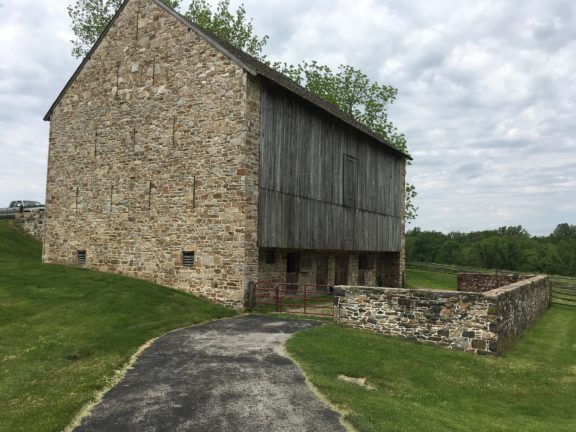
We still have an abundance of farms within the PYM community. Those we know of include Taylor Riverside Farm (eco-tourism), Linvilla Orchards (just about everything including baked goods), Walton-Myers Farm (belted Galloway beef), Eden Valley Farm (Wagyu-Angus beef), Snipes Farm (CSAs and eco-tourism), and the Bernhardt Family’s Orchard (a ‘pick your own’ farm, and CSA, that is located next to a Media, PA, park and trail).
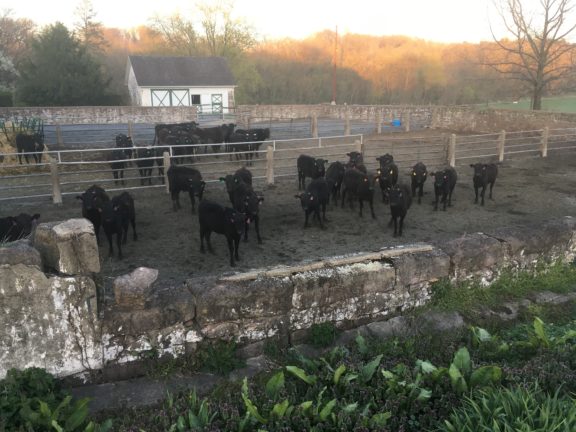
These farms grow all sorts of products and also deliver pleasurable outdoor experiences. They raise grass-fed cows that amble across green hillsides, eating homegrown forage in winter, or offer pick your own fruit experiences, CSAs for seasonal harvests, nature walks, and even Christmas tree sales and hay-ride experiences.
Image source: http://www.mapsofpa.com/antiquemaps23.htm